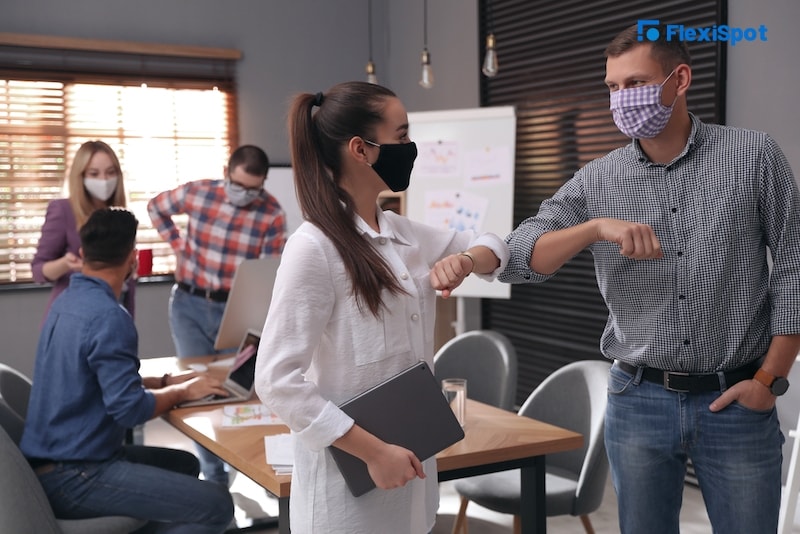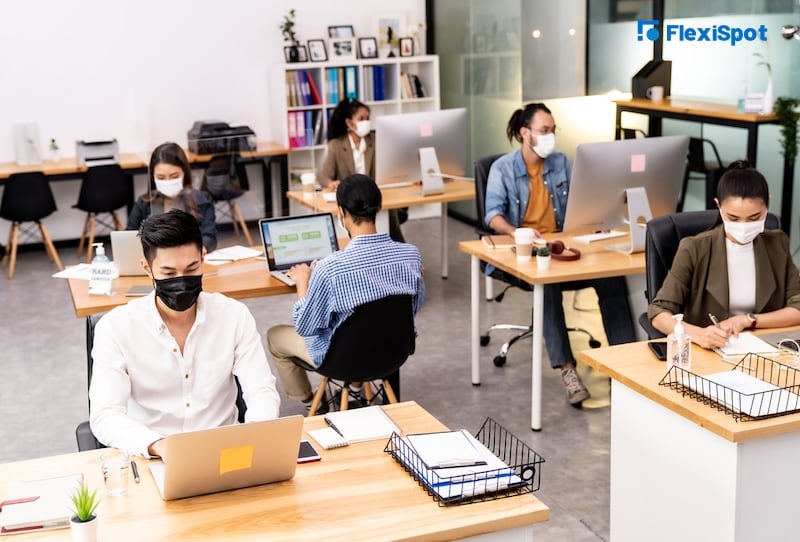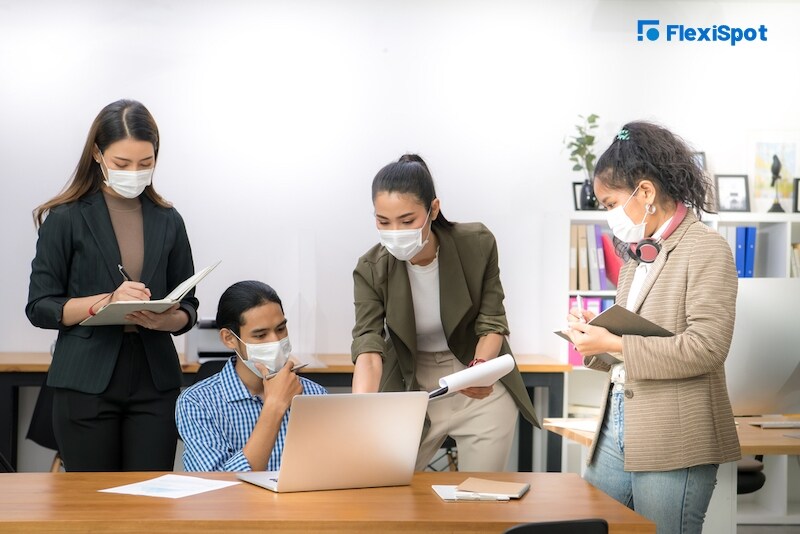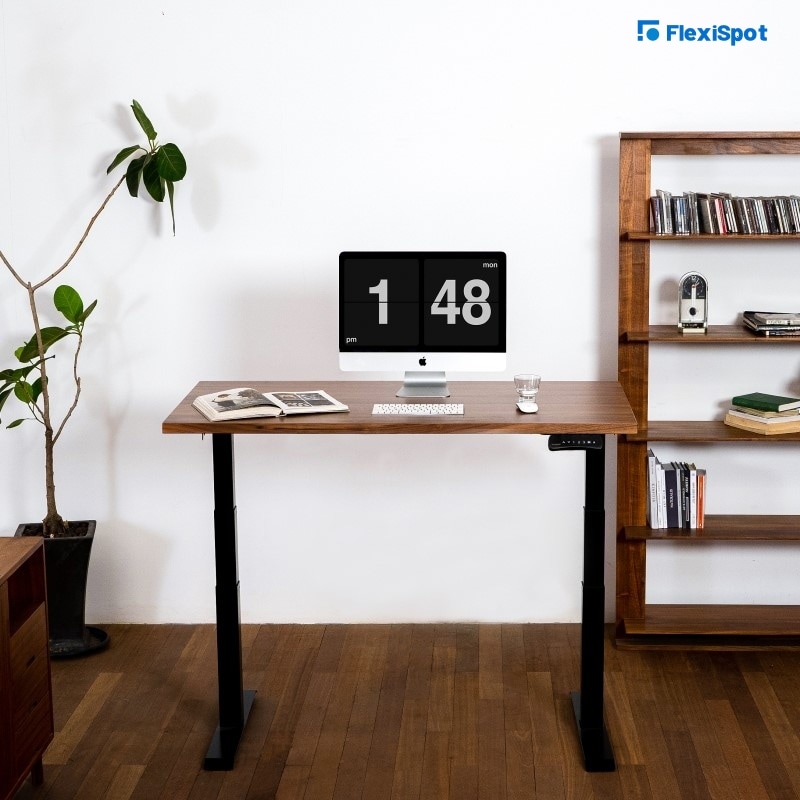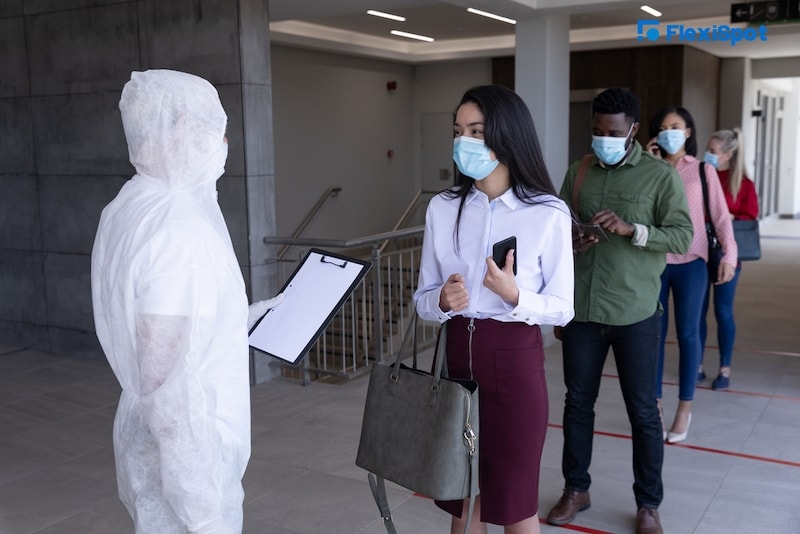As time goes on, workplaces have started to open up as workers go back to working physically. Some workplaces have adopted a hybrid model where employees work from home half the days and work from their physical workplaces on the remaining days of the week.
However, the return of employees means that vaccine and mask requirements need to be implemented, along with physical distancing, testing, and frequent sanitizing and cleaning. These measures are meant to protect employees from exposure and keep them safe. For this, it is important to execute a plan that includes health tips for returning employees.
Remember, employees may be concerned about returning to work after the pandemic but that is completely normal. Staying healthy while juggling responsibilities at home or just getting back into the routine of the day can feel overwhelming. Here are some health tips you can follow to ensure that the transition from home to the workplace for your employees during COVID times is as seamless as possible:
Understand Your Workforce
For starters, you need to identify which places in the workplace are vulnerable to exposure. Is your workplace people-oriented? Are your employees working closely together on a construction site? Are they in an office?
According to the Centers for Disease Control and Prevention, safety measures for workplaces need to include enhanced disinfecting and cleaning of the workplace, physical distances, and ensuring that all employees wear masks. CDC and SAFER guidelines also state that air filtration and increased ventilation are important health tips for returning employees.
Moreover, workplaces need to provide personal protective equipment to every worker, depending on their risk exposure. Touch points need to be reduced- a good alternative is lights that can work on sensors. Furthermore, hand-free or foot-operated doors should be installed wherever possible.
With workers coming back to work, you must also ensure that they are all vaccinated. You need to decide whether workplace rules will require proof of vaccination or whether you want to encourage workers to get the necessary shots of vaccination or make them mandatory.
Understand the Workplace
Before employees return to work, you must examine the workplace. Assess the space and think of ways to ensure that the workers are safely distanced at all times. When it comes to common areas and workstations, workplaces need to set capacity limits by restricting the number of people in one space at a time.
One way to do this is by rearranging furniture and seats in common spaces like meeting rooms, locker rooms, and cafeterias to follow physical distancing. Foot traffic can also be controlled by designating certain stairwells that are only for going down while others are for going up. Separate doors must also be designed as exits and entrances so that you can discourage crowds of people gathering at one spot.
Workplaces must also avoid filling the space to maximum capacity. In this case, employees need to be put on a hybrid schedule so that they can work on a rotational basis that will allow them to work remotely as well as come into work during the week.
Moreover, if your workplace has been non-operational for a long period of time, according to the CDC, you must also check the space for mold growth, as well as pests and rodents. The outdoor air circulation must be increased, and water systems need to be tested so that the spread of diseases can be minimized.
Increase Communication
One of the most important health tips for returning employees who have been working remotely during the entire pandemic is to ensure communication. This means that workplaces need to encourage workers to visit each other’s workstations, as well as offices of higher authorities, as long as they are safely distanced from each other.
In-person group meetings should also be allowed so that workers should express their thoughts and concerns. They should be encouraged to ask whatever questions they need to without fearing retaliation of any sort. In a world riddled with COVID-19, things are constantly changing, which is why communication is essential. In fact, workplaces are encouraged to set aside the last 10-minutes of meetings to have open communication with their employees.
Introduce Flexible Furniture
With so much uncertainty, it is important that office furniture needs to be flexible. A workplace must-have furniture that is easy to reconfigure, sanitize, and move to ensure long-term utility. One of the best ways to do this is by installing Willow Pro Solid Wood Standing Desks in the workplace. This is a sensible solution that will ensure flexibility so that employees feel safe.
The Willow Pro Solid Wood Standing Desk is made from solid wood that comes directly from trees without any adhesive or fillers. The wood fibers are present throughout the lumber piece. Workplaces can choose between two colors- cherry wood and black walnut wood. Cherry wood has a smooth pattern, similar to maple wood. Moreover, there are three frame options to choose from- Eco (2-stage), Pro (2-stage), and Pro (3-stage). These desks can hold the weight of computers, keyboards, and other accessories.
Moreover, workplaces must ensure that all furniture can be cleaned properly. Workplaces around the world have adopted upholstered materials that can tolerate heavy cleaning. Plastic, metal, and other hard surfaces can also be cleaned properly and often so they can be incorporated into the office. Designers have started to include furniture made of natural stone and wood- both of which are antimicrobial. These materials also make the environment feel more welcoming and calmer- two qualities that are essential for employees returning to work after a long break.
Touch Base to Ensure that Measures are Working
SAFER made 300 organizations take a survey in which 3,800 workers were asked which safety measures that their workplace had employed made them feel the safest. According to the employees, necessary facemasks and hand sanitizer dispensers installed at various locations in the office were the most effective. These employees also said that the least effective measures were higher salaries for at-risk workers, mandatory at-home COVID tests, and the increased amount of time between each shift change.
Workplaces need to ensure that if they have employees returning to the office, they should pass out weekly or bi-monthly surveys. These surveys should allow employees to speak their heart on whether they feel safe at their workplace, which measures they like, and which measures seem useless to them. A committee should be formed that will go through the replies of employees, and necessary adjustments need to be made to the workplace. The key to a successful environment is to keep COVID cases from rising and to ensure that workers feel safe at all times.
Monitor Mental Health
As an employee, one of the health tips they should follow is knowing when to ask their employer for a break in case they need time off.
Everyone, including employers and employees, continues to have a hard time with coronavirus. Workplaces need to introduce “mental health days” alongside sick days and casual days where employees are given the freedom to take some time off from work if they feel overwhelmed or burnt out. If workplaces do not encourage employees to take care of themselves, they will not be able to work effectively.
Moreover, employers should encourage their workers to promote mental health and openly converse about it with other employees at the workplace. Every individual working at the office should have access to mental health services that are free of charge. Moreover, they should feel comfortable voicing out any concerns that they might have. As a workplace, you must make your workers feel safe at all times.
Conclusion
The pandemic has taken a toll on everyone’s mental health. Many lives have been lost, and many individuals have suffered countless losses during the past months.
Even though workplaces have started to open and employees have slowly started to go back to work, it is important that physical distance be maintained and masks be worn at all times. These measures can ensure that case numbers around the city do not rise and everyone continues to remain safe.
